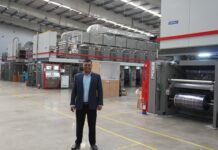Shirish Divgi, the managing director of Milacron, a company that manufactures plastic injection molding equipment in India, said at the Elite extrusion and molding conference in Mumbai, “(The) Indian economy is marching toward becoming the 5th largest economy in the world by 2030.” He cited a global competitive survey of CEOs done in 2016, which predicts that India will go from its number 11 ranking in 2016 with a score of 66.2 to number 5 in 2020 with an expected score of 77.5.
In 2020, it is expected that India’s global manufacturing competency will only be behind USA, China and Germany, and in these years it will overtake countries such as South Korea, United Kingdom, Taiwan, Mexico, Canada and Singapore. Divgi suggests that to take advantage of the opportunities in both domestic and export demand, our manufacturing capabilities particularly of plastic extrusion and molding equipment need to be enhanced. This, first of all, requires that we should be ready to scale our manufacturing upward—we need manufacturing facilities of global scale.
Investments in technology and layout should make our factories synchronous with flow assembly lines. For global markets, we also need to have sophisticated design and advanced computer simulation technology and software in order to innovate and to expect precision and performance from our first new products. Machining of high-performance and critical components has to be done in-house. To go global even an air-conditioned machine shop can bring down tolerances by remarkable levels that improve performance and save energy in machine operations.
Also recommended is the use of Industry 4.0, which first of all has a lot to offer to improve our own operations and also that of our customers. Globally competitive machine manufacturing requires not just plant and technology but also a clear focus on the human resource. This team principle, which Divgi calls ‘Eklavaya’, requires learning and practice. It requires leadership with a sense of adventure and fun. It requires a 5S culture of discipline and ‘Gemba’ on the shop floor.
Other keys for global competitiveness, in machine manufacturing particularly, require the elimination of waste of every kind from materials such as paint to space. Here Divgi recommends a value-added space analysis. “You may not need a bigger plant, just a better organized and a more technology-oriented and skilled operation.”












